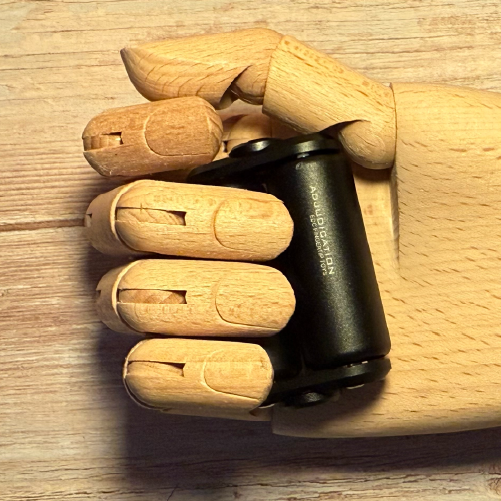For those moments when the day disappears before you realise it even began.
Some days, time feels like something that’s happening to you — not something you’re part of. You sit down to do one task and hours pass. Deadlines drift. Meals get missed. You’re not procrastinating. You’re not ignoring the clock. You just didn’t feel time pass at all.
This is called time blindness — one of the most common, and least talked about, experiences of living with ADHD. It’s not a lack of motivation. It’s a brain that struggles to sense, measure, or track time the way others do.
At get Mind, we believe time management isn’t about discipline — it’s about connection. Here are a few gentle ways to navigate time blindness with a little more ease and clarity.
1. Use Visual Anchors
If you struggle to feel time passing, try turning it into something you can see.
Analogue clocks, time-blocked planners, and hourglasses give your brain visual reference points. You’re not just reading a number — you’re watching time move.
The get Mind: Flow Spinner is ideal as a tactile visual anchor. A single spin gives you a small, controlled loop of time. It won’t tell you the hour — but it reminds you to check in, breathe, and return to what matters.
2. Break Time into Friendly Segments
Open-ended time can feel impossible. “Work on the report” might mean 10 minutes — or 3 hours.
Instead, try framing your time in gentle blocks. For example:
• 25 minutes focus
• 5 minutes reset
• Repeat as needed
You can pair these with physical transitions: a stretch, a sip of water, or a spin of the Kinetic Spinner. These moments don’t just mark time — they help your body feel it pass.
3. Keep “Now” Visible
ADHD can make the future feel invisible — if something isn’t happening now, it may as well not exist.
Try surrounding yourself with cues that bring “what’s next” into the present. Sticky notes, a visible to-do list, or a small object moved from left to right as you progress.
You’re not building structure for the sake of it — you’re bringing shape to something your brain can’t automatically hold.
4. Let Go of Guilt
Missing time can feel shameful. You might think, “Why didn’t I notice?” or “Why does this keep happening?”
But time blindness isn’t carelessness. It’s wiring.
Next time it happens, don’t spiral. Just notice. Then reset. Your brain wasn’t late — it just lost its place. And that’s okay.
A Quiet Companion, When the Hours Blur
Time doesn’t always feel real — but your presence does.
At getmind.co.uk, we make tools that help you reconnect. Tactile companions like the Seesaw Haptic Clicker or Flow Spinner are designed for gentle resets — not productivity pressure.
Because you don’t need to control time. You just need to feel a little more anchored in it.
Further Reading & Resources:
CHADD: Time Blindness in Adults with ADHD
ADDitude: What Is Time Blindness?
ADHD Foundation UK: Understanding Executive Function




Leave a comment
This site is protected by hCaptcha and the hCaptcha Privacy Policy and Terms of Service apply.